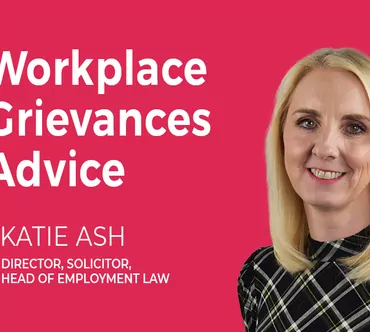Contracts of Employment
Contrary to common popular belief, an employer doesn’t have to provide an employee with a contract of employment.

We can help with your employment issue
Contrary to common popular belief, an employer doesn’t have to provide an employee with a contract of employment.
However, they must provide an employee with a statement of their main terms and conditions within 2 months of the employment commencing (or within 1 month of any change).
Most employers do decide to issue contracts of employment as they can cover much more than the basic requirements of the mandatory statement of terms, for example, restrictive covenants.
When starting a new job or changing roles, it’s essential to make sure you understand what the contract says – and to make sure that there aren’t any surprises.
When issues arise, we can help you interpret the policies and procedures your employer has in place and can advise you on how your employer should be dealing with those issues. This arises most often in relation to cases where an employee is sick, or there is a disciplinary or grievance issue or the employer is undertaking performance management. We have advised and supported employees in all sectors as to the policies and procedures their employer has put in place and the way in which they are implemented.
Common Contracts of Employment Questions
Areas Covered
Expert Employment Law Solicitors
Our expert employment law solicitors are highly experienced and will treat each case uniquely depending on your circumstances. Our employment law specialists achieve solutions through confidential settlements and are always on hand to provide support when resolving employment law problems. We have worked on many employment law cases and each individual receives the upmost care and consideration throughout the case.
Having a contract reviewed before entering in to it can be very beneficial for you so that you can ensure that the contract accurately reflects the agreement made between you and your employer.
As well as the contract of employment, many employers will decide to have a Staff or Company Handbook which sets out their working practices and any expectations that they have for their employees. A Staff or Company Handbook isn’t mandatory, but there are some policies and procedures that we would advise that every employer should have, including:
- A Disciplinary Procedure
- A Grievance Procedure
- An Equal Opportunities Policy
- A Bribery Policy
- A Smoking Policy
However, as there are many other aspects of working practice that an employer and their employees will want to know about, many employers will decide to have a Staff or Company Handbook to ensure that the business runs as effectively as possible, with managers and staff knowing what is expected of them, what happens when, and where to find information about a particular issue when they need it.
If you have an employment problem, often it is something else for consideration within your case, so it is always worth contacting an employment law solicitor and finding out for certain.
At Banner Jones we can advise you on your legal rights regarding employment law, where they relate to the following:
- Unfair Dismissal and Disciplinary Proceedings
- Maternity and Paternity Rights
- Discrimination
- Redundancy
- Applications to employment tribunals
- Any other employment disputes
Want to know more?
An Office Romance - What Employers Should Be Aware of When Managing Relationships at Work
Discover how employers can effectively manage office romances while respecting privacy, preventing conflicts of interest and meeting the duty to prevent sexual harassment. Banner Jones’ Employment Law specialists provide guidance, policies and training to keep your workplace compliant and protected.
We take data privacy very seriously, and we want you to understand and feel confident about how we collect, store and handle your personal data. If you’d like to find out more you can read our Privacy Policy.






